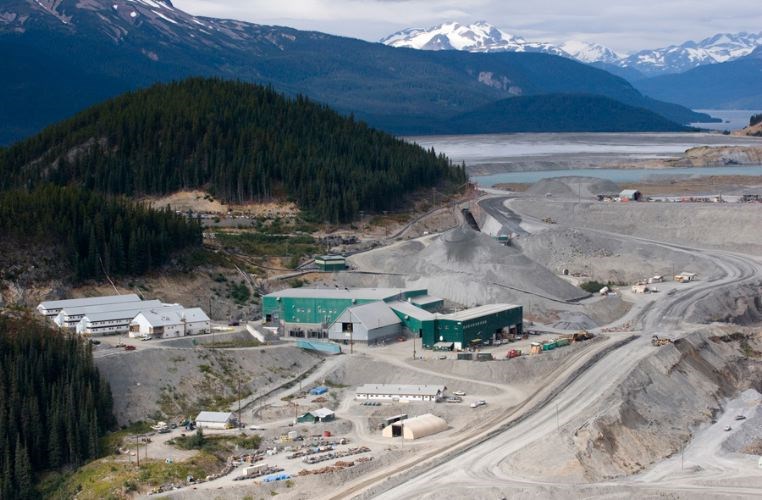Teck, the coal and copper mining giant, is responsible for nearly 60 per cent of the $1.2-billion in underfunding for the cleanup of mines when they close in B.C., according to figures obtained by The Vancouver Sun.
B.C. law requires mines to post security, for example a bond, to cover the costs of reclamation and often continuing treatment of tailings pond water when mines close. But a B.C. auditor general's report released earlier this month said there is a $1.2 billion shortfall. A mine-by-mine breakdown of the shortfall was provided by the B.C. Mines Ministry at The Sun's request.
In releasing her report, Auditor General Carol Bellringer said the shortfall means taxpayers could be on the hook if a company couldn't pay for cleaning up a closed mine.
The auditor general recommended that mine-by-mine details be reported and that government "safeguard" taxpayers by ensuring the estimate of the reclamation liability is accurate and that security demanded by government is sufficient to cover potential costs.
B.C. Mines Minister Bill Bennett said Wednesday he was surprised - probably a "little shocked" - by the mine-by-mine breakdown which he saw for the first time this week.
The data is from 2014, the latest information available to the B.C. government.
Bennett noted, however, that it's been challenging to call on companies to immediately provide more security to meet liabilities that are rising fast because of changing regulatory standards, particularly dealing with water treatment.
He noted that financial security for reclamation costs had doubled in the last decade. Still, Bennett said, changes are needed.
"It's important for the government to, I think, generate more public confidence that we are actually in a position, where there was some sort of major default by a company, that the taxpayer wouldn't be on the hook for an unfair amount of reclamation costs," he said.
"We are not in a position where I can say that today, so corrective action is required."
Exactly what changes will take place are not clear, but ministry staff are examining how other jurisdictions in Canada and abroad deal with the issue. Initial research by ministry staffs shows provinces such as Ontario, Alberta and Nova Scotia have also identified underfunded liability as an issue.
Bennett said he hopes to have a "concrete" plan in place by early 2017, before the next provincial election.
The data provides the first public mine-by-mine breakdown, as legislation allows the information to be kept confidential by companies.
The B.C. government asked the mines to provide the breakdown, which they agreed to do.
Bennett said legislative changes may be needed to ensure the public has continued access to the detailed information.
The 2014 data shows the B.C. government holds financial securities of $450 million from Teck for its multiple coal mines and its large Highland Valley Copper mine against estimated reclamation costs of $1.187 billion.
That leaves an underfunded liability of $736 million.
Teck spokesman Chris Stannell said the company's reclamation bonding had increased 65 per cent in the past five years to more than $500 million in security.
"Teck has been operating in B.C. for over 100 years and we have a long and proven track record of responsibly closing and reclaiming sites after mining has concluded," said Stannell.
Barrick Gold, which has several shuttered metal mines in B.C., including the Eskay Creek gold and silver mine in northern B.C., has put up financial security of
$6.5 million on total estimated reclamation costs of $218 million.
That means the B.C. government holds an underfunded liability of $212 million, 97 per cent of the total reclamation cost.
Barrick spokesman Andy Lloyd said the company had reduced its unfunded liability to $110 million by 2015. "Barrick will absolutely meet its environmental reclamation commitments," said Lloyd, noting the company had
$2.3 billion in cash at the end of first quarter in 2016.
In another example, the B.C. government has an underfunded liability of $73 million on
estimated reclamation costs of
$79 million for Switzerland-based Glencore, which owns several closed mines in B.C., including the Bell mine in northern B.C.
Imperial Metals, whose Mount Polley mine's dam failed in 2014, has a $10.5 million underfunded liability on total reclamation costs of $29.5 million.
Peace River Coal has a $67 million underfunded liability on its Trend mine, and Thompson Creek Metals has a $29.2 million underfunded liability on its Endako mine near Fraser Lake.
The breakdown shows some companies have provided financial security for the total estimated cost of reclamation.
Among those are Taseko's operating Gibraltar gold and copper mine near Williams Lake, Goldcorp.'s shuttered Equity Silver mine in northwest B.C. and AuRico's Kemess South gold and copper mine in the northeast.
When the auditor general released her report earlier in May, she noted that mining companies are vulnerable to boom and bust cycles as commodities fluctuate.
Bellringer's report noted that $730 million of the underfunded liability is for mines that require water treatment, which contravenes the Mines Ministry's policy of requiring full security on mines that require long-term water treatment.
A report commissioned by the Union of B.C. Indian Chiefs on the underfunding, released this week, said the practice is "enabling" a dangerous disregard for environmental monitoring, reporting and protection.
The report noted that Quebec and Alaska require full funding of project reclamation from miners.
The report, by economist Robyn Allan, former head of ICBC under the NDP in the '90s, concluded that in addition to a $1.3-billion unfunded reclamation liability, the province has assumed responsibility for reclaiming abandoned mines, putting taxpayers on the hook for a further $275 million.
"Factor in the poor performance, lack of enforcement capacity and muddled political direction of the ministries of mines and energy and of the environment, and the failure to ensure all mines are safe and held accountable - and British Columbians have a great number of reasons to mistrust the mining sector," said Grand Chief Stewart Phillip, president of the Union of B.C. Indian Chiefs.



